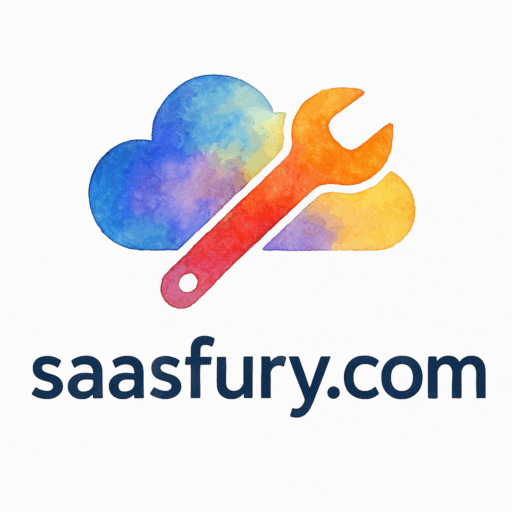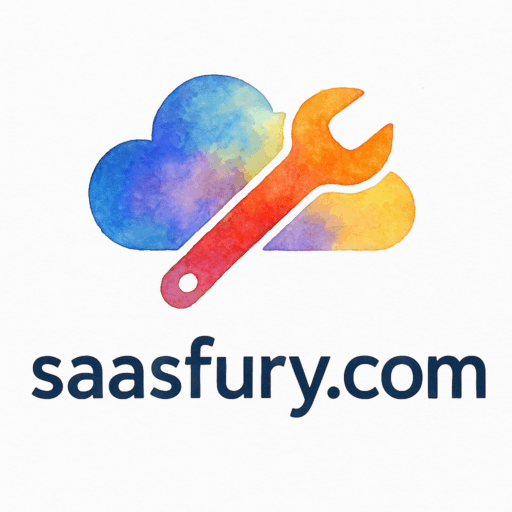Introduction: Why SaaS Tools Are Essential for E-commerce Success
Running an e-commerce business today isn’t just about having a good product. The competition is fierce, customer expectations are sky-high, and marketing trends evolve faster than ever. That’s where SaaS tools for e-commerce marketing step in. These cloud-based solutions simplify workflows, enhance customer engagement, and help you scale without breaking the bank.
If you’re serious about growing your online store, adopting the right SaaS stack isn’t optional—it’s essential.
Understanding SaaS in the Context of E-commerce
What is SaaS?
SaaS, short for Software as a Service, is a cloud-based software delivery model where users access applications online instead of installing them locally. Think of it like renting a tool instead of buying it—you get continuous updates, support, and scalability.
How SaaS Tools Transform E-commerce Marketing
From personalized email campaigns to advanced analytics, SaaS business tools empower online retailers to manage customer relationships, boost sales, and streamline operations.

Benefits of Using SaaS Tools for E-commerce Marketing
Scalability and Flexibility
E-commerce brands often face seasonal spikes. SaaS tools allow you to scale up during peak seasons and scale down when things are quieter—without hefty IT costs.
Cost-Effectiveness
Forget about expensive software licenses. Most SaaS tool recommendations offer subscription-based pricing, so you only pay for what you use.
Automation and Efficiency
Automation in email, social media, and customer support saves time and reduces human error.
Better Customer Insights
Analytics-driven tools collect valuable data, helping you understand customer behavior and improve targeting.
Criteria for Choosing the Right SaaS Tools for E-commerce
Ease of Integration
The best tools integrate seamlessly with platforms like Shopify, WooCommerce, or BigCommerce.
Pricing and Scalability
Look for tools that grow with your business and don’t charge a fortune upfront.
User-Friendly Interface
Complicated dashboards are a nightmare. Choose tools your team can adopt quickly.
Support and Training
A responsive support team and training resources are critical for smooth onboarding.
9 SaaS Tool Recommendations for E-commerce Marketing
1. HubSpot – All-in-One Marketing Automation
HubSpot is more than just a CRM—it’s a full-blown marketing powerhouse for marketing agencies and online stores.
Best Features of HubSpot
- Email marketing automation
- CRM integration
- Sales and marketing dashboards
Why E-commerce Brands Love It
HubSpot helps e-commerce stores nurture leads, manage customers, and streamline campaigns from one place.
2. Klaviyo – Email & SMS Marketing
Best Features of Klaviyo
- Advanced segmentation
- Pre-built e-commerce templates
- SMS and email integration
Why It Works for E-commerce
Klaviyo’s deep integration with retail e-commerce platforms makes personalized campaigns simple and profitable.
3. SEMrush – SEO & Competitor Analysis
Best Features of SEMrush
- Keyword research tools
- Competitor traffic analysis
- Backlink tracking
Benefits for E-commerce Stores
With SEMrush, you can uncover the exact keywords competitors are ranking for and strengthen your online retail SEO strategy.
4. Shopify Apps – Sales & Marketing Enhancements
Top Marketing Apps in Shopify
- Privy (popups & email marketing)
- Smile.io (loyalty programs)
- ReConvert (post-purchase upsells)
Why They’re Game-Changers
Shopify apps extend functionality, helping small businesses capture leads, improve conversions, and retain customers.
5. Buffer – Social Media Scheduling
Best Features of Buffer
- Cross-platform scheduling
- Social analytics
- Team collaboration tools
Why It’s Great for E-commerce
Buffer keeps your omnichannel social media marketing consistent, boosting engagement and brand awareness.
6. Canva – Graphic Design for Marketing Campaigns
Features That Stand Out
- Drag-and-drop design editor
- Templates for ads, banners, and social posts
- Brand kits for consistency
Why E-commerce Businesses Use Canva
From graphic design to social ads, Canva allows even non-designers to create professional marketing visuals.
7. Hotjar – Customer Behavior Analytics
Key Features of Hotjar
- Heatmaps
- Session recordings
- On-site surveys
Why It Helps E-commerce Marketers
Hotjar shows exactly how visitors interact with your site, helping consulting and marketing teams improve conversion rates.
8. Zendesk – Customer Support & Engagement
Best Features of Zendesk
- Live chat and ticketing system
- AI-powered bots
- Multi-channel support
Benefits for Online Stores
Zendesk ensures no customer feels ignored—making it a go-to tool for hospitality & food service businesses and online retailers alike.
9. Google Analytics 4 – Data & Insights
Features That Matter Most
- Real-time reporting
- Customer journey tracking
- Advanced attribution models
Why It’s a Must-Have Tool
Google Analytics 4 is the backbone of data-driven retail strategies, guiding smarter marketing decisions.
How to Combine SaaS Tools for Maximum Impact
Integrating Tools into a Seamless Workflow
For example, connect Klaviyo with HubSpot for email automation while syncing Google Analytics for deeper insights.
Avoiding Overlap and Redundancy
Pick tools that complement each other instead of duplicating features.
Common Mistakes to Avoid When Using SaaS Tools in E-commerce Marketing
Relying Too Much on Automation
Automation is great, but don’t lose the human touch.
Ignoring Customer Personalization
Generic campaigns won’t cut it—use SaaS to deliver personalized customer journeys.
Overloading on Too Many Tools
Stick to tools that fit your workflow instead of chasing every new trend.
Future of SaaS in E-commerce Marketing
AI-Powered SaaS Tools
Expect more predictive insights and personalization powered by AI.
Personalized Customer Journeys
Future SaaS platforms will offer tailored experiences across multiple touchpoints.
Omnichannel Integrations
Next-gen SaaS will merge social, email, web, and even offline retail software into one seamless ecosystem.
Conclusion
E-commerce marketing without SaaS tools is like trying to climb a mountain without gear—it’s possible, but unnecessarily hard. From automation to analytics, these nine SaaS recommendations will help you market smarter, not harder. Choose wisely, integrate thoughtfully, and watch your store thrive.
FAQs
1. What are SaaS tools in e-commerce marketing?
They are cloud-based applications that help businesses manage, automate, and optimize their marketing.
2. Which SaaS tool is best for small e-commerce businesses?
Klaviyo and Canva are cost-effective options for small businesses.
3. How do SaaS tools improve customer experience?
They provide personalization, faster responses, and better data insights.
4. Are SaaS tools expensive for startups?
Not always—many offer affordable monthly plans or free tiers.
5. Can I use multiple SaaS tools together?
Yes, integrations are designed to maximize efficiency.
6. What’s the biggest mistake in using SaaS tools for e-commerce?
Over-relying on automation and ignoring personalization.
7. How will SaaS tools evolve in the future?
Expect AI-driven automation, omnichannel campaigns, and smarter customer journey tracking.

